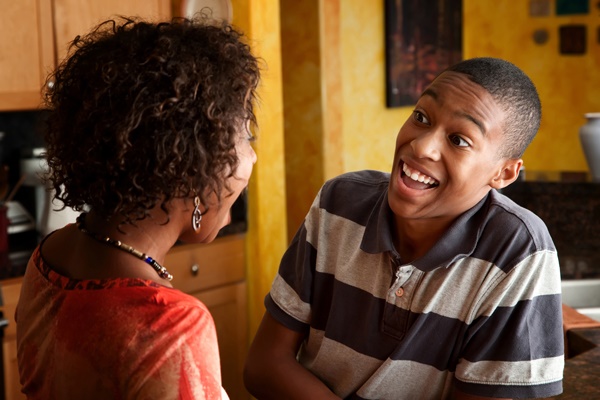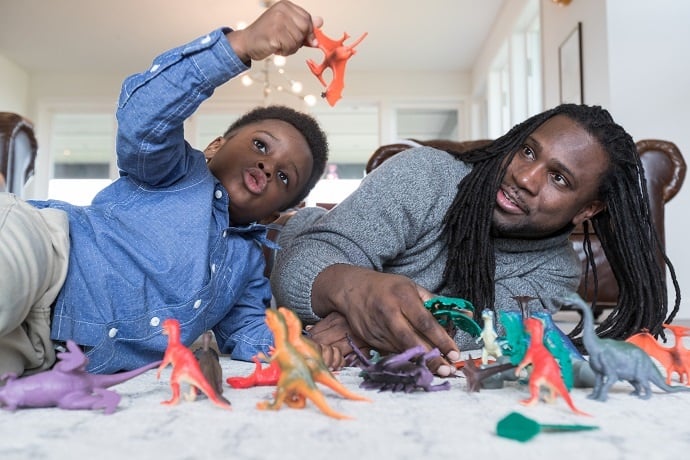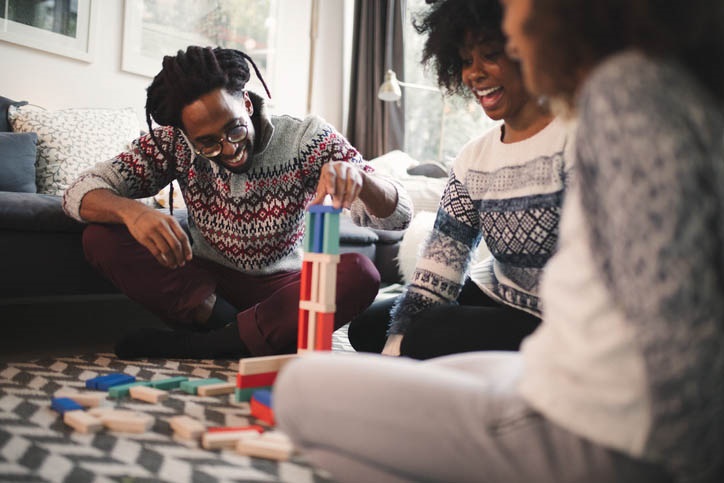
In the face of crisis and adversity, why do some people seem to thrive and grow, while others struggle to survive?
According to accredited life-coaches and founders of The Resilience Factory, Gabi Lowe and Pippa Shaper, the answer lies in that elusive ingredient ‘resilience’.
Together Lowe and Shaper have created ten strategies for overcoming life's hurdles called, The Ten R’s of Authentic Resilience.
Finding that the strategies outlined in their model work quite well in helping families navigate the anxiety, fear and uncertainty caused by the coronavirus pandemic, Lowe and Shaper have made their Authentic Resilience guide available to Parent24 readers.
We have taught the model and Authentic Resilience skills to over 1500 people through face-to-face workshops over the past two years. And now, as the coronavirus pandemic grips the world, it couldn’t be more relevant.
Below we have applied our Ten R’s of Authentic Resilience to the coronavirus to provide families with supportive strategies that will help in this difficult time.
- How to cope during the national lockdown: A local psychologist advises on keeping your family grounded
- These 12 Museums are offering virtual tours you can take from the comfort of your couch
- Family in lockdown: Here are 4 ways to keep the kids happy (without resorting to Netflix)
1. Reality
Staring down the truth and making meaning of the mess.
Until you face the facts -the truth - you won’t get out of the starting blocks. When faced with a crisis, such as the one we are currently facing, we tend to either go into denial (avoidance of the truth) or dramatisation.
The aim is to avoid denial and avoid drama -to stay in the middle in ‘realistic optimism’ which means being prepared for all eventualities while remaining matter of fact and calm.
Avoid sensationalism, catastrophizing and fear-mongering BUT denial and burying your head in the sand is NOT a good idea at this time.
Separating facts from assumptions is critical at a time like this when there is so much fake news available.
This means making it your business to become and stay properly informed. You need to know how the virus spreads and how best you can protect yourself, your family, and your community.
All research, in the short window of history that we have, has shown conclusively that prevention and containment are key – especially in a country like South Africa, where our health systems are already under pressure.
Large portions of our society are physically vulnerable. Take the necessary measures that have been proven to help by reputable sources.
2. Reach in
“Courage is not the absence of fear, but the triumph over it” – Nelson Mandela
These are uncertain and volatile times but imagining the worst or believing you “won’t get through this” will greatly impact your ability to cope. Stay informed but open-hearted and community-thinking.
Take charge of what you can change and control and let go of what you can’t. This challenge can bring us all together and make us a stronger community as we are all in this together.
The definition of vulnerability is that it requires uncertainty, risk and emotional exposure (Dr Brené Brown). Never have we lived with such vulnerability on a global scale.
This is a time to hunker down at home and deepen your relationship with yourself and with your family, friends, team members and community members, albeit remotely.
Self-isolation doesn’t mean isolating yourself from your feelings and your loved ones. Continue to stoke the fires of your important relationships. We have a shared cause, vision and goal to stay healthy and protect each other.
To care and stay calm. If you find yourself panicking or feeling overly stressed, remember:
- Ground yourself in your body and your breath and remain present.
- Stay with the facts; you control your thoughts, don’t allow them to control you and run wild.
- One day at a time – plan and be prepared for the worst but hope for the best.
- Use breath, journaling and stillness to help with your emotional state.
3. Response-ability
You always have a choice as to how to respond.
The way you choose to respond today, and in every moment going forward is crucial.
Emotional maturity (mindful conscious choice) is at your disposal all the time.
In our workshop, we talk about Dr Martin Seligman’s work around the 3Ps - that when we make things personal, permanent and pervasive, we are setting ourselves up for failure.
Coronavirus is not personal; it is a global phenomenon.
This is not permanent (this too shall pass, eventually) and although the impact feels quite pervasive now, it is important to remember that we have the power to limit this pervasiveness by containment and “flattening the curve”.
It is our responsibility to respond quickly, effectively and maturely so that we can contain the spread of the virus.
It is all our responsibility to remain informed and respond cohesively for everyone’s communal protection.
- Think and act thoughtfully - accessing your emotional intelligence is vital right now.
- Challenging times such as these can make it hard to remain positive.
- Avoid behaving like a victim and stay out of apathy, accusation, blame, complaining and criticism.
- We cannot control the pandemic, but we can control our response to it.
- We cannot change the situation, but we can change our attitude.
4. Reach out
We are wired for connection; we can’t go it alone.
The coronavirus calls for social isolation, but this does not mean that we cannot reach out to each other to be heard, to be seen and to connect. Or that we cannot stay in touch in a meaningful way.
Be aware of your needs – stay in touch with your vulnerability and your strengths. Think strategically and reach out to others for support, share solutions and ideas and offer help.
We need more than ever to stick together as a community not to shun each other and shut down.Working together, collaborating has never been more important, albeit at a distance.
Notice the isolated older person who needs you to shop for them, or the friend who isn’t coping.
This is a time for ‘we’ thinking; not ‘I’ thinking. Check all decisions with this question: ‘is my decision just serving me, or is it in the best interests of the whole community?’
5. Robust revolutionary thinking
Living in the landscape of possibility.
When crisis hits, and change is exponential, it is easy to lament our losses, complain, blame and hang on to comfortable old behaviours.
A much better strategy is to force ourselves to adapt to change - find new ideas, new tools, and new resources.
How could you, right now, look for totally new opportunities, new ways of being and new ideas to implement going forward?
Maybe it’s time to think about forming your own Board of Advisors – people who have other strengths and skills to complement the ones you have - and add a few more experts to it.
Or become an expert for someone else using your strengths and skills.
Have you had a meeting with your family to discuss your coronavirus strategy? Are you challenging your thinking?
Now is the time to really dig into your strengths and use them to serve others. Think creatively!
6. Relentlessness of change
The one thing we can ever know for sure is that everything will change.
Dare we say more? Nothing is ever permanent. This is one of the main pillars of our coaching and yet one of the hardest to embrace.
Nothing could demonstrate this better than the coronavirus pandemic. It calls for both grit and perseverance, to keep on keeping on, AND flexibility and adaptability, to roll with the punches, like nothing else we have seen globally in our lifetimes.
Many of us like the feeling of being in control of things – it gives us comfort, and unplanned events can leave us feeling chaotic or depressed.
The truth is that accepting that you can’t control events is key - but you can control how you are responding to them. T
That is where you need to put your energy, efforts, and focus. Don’t cling on too tightly -if plans need to change – daily or hourly even - go with the flow.
This is not the time to hold on to the way things were, but to adapt to the new and accept that nothing is permanent.
7. Reflection
Becoming a human being rather than a human doing.
What you do is not who you are. Often, we are so busy doing that we forget how to be human beings.
In the end, who we are is about our values, ideals, connection, community, and what matters deeply to us.
When we define ourselves through the external – both in terms of circumstances and in terms of the things we acquire – then loss or abrupt change can be painful, and it can feel like we are losing a part of ourselves, our identity.
In truth, your innate wisdom, your ideals, your values and your guiding principles will remain intact no matter what.
If you can turn toward your internal self, find the stillness and focus on becoming self-directed, self-regulated, and self-motivated. You will not lose your sense of identity because that identity lies deep within.
In this sense, having more time at home can be a real positive. Use this time for valuable and purposeful self-reflection.
This could be the ideal time (and for most of us the first time) to sit and meditate with family members, to start a regular journaling practice, to learn to paint or engage in other creative activities such as drawing, gardening, cooking, baking, or crafts.
8. Renewal
“Take care of your body, it’s the only place you have to live” - Jim Rohn
More than ever, self-care is essential – not optional. The three basics – good sleep, nutrition and exercise - are non-negotiables.
Plus, we should be adding specific protocols and regimes to build our immunity and remain strong so that if you or anyone you know contracts the virus you are more able to cope with it or nurse a loved one.
Ensure you are stocked up on all health supplements or chronic meds you may need – and don’t forget the importance of continuous hand washing and sanitising.
If you have specific health concerns, you need to speak to your health care provider but use this time to consciously take care of yourself and increase self-care awareness.
Be very wary and mindful of addictions of any sort, be it over-exercising, excessive alcohol or smoking, excessive eating or obsessive-compulsive behaviours, this is time for practices that calm the nervous system.
What you need at this time is nurturing and caring behaviours that will help you renew, restore, stay calm and healthy.
9. Ratio
Consciously seeking perspective.
Keeping perspective and holding onto hope is essential at a time like this. Allowing fear and negativity to engulf you is futile.
Everybody has a choice to make: to complain and fear-monger or to be grateful for what you do have and the choices you can make.
Remember:
- The ability to laugh and find humour in even the darkest of situations can be healing and uniting.
- An attitude of gratitude, even when it’s hard, can rewire your thinking, bring a fresh perspective and give you access to your best creative thinking, so that positive actions and results can emerge.
- Focus on everything you’re grateful for, remember it, hold it top of mind, communicate it, and remain open no matter how hard that feels.
- Often at the worst of times, we come face-to-face with the best of ourselves and others.
10. Recalibration
“Every thought we think is creating our future reality” - Louise Hay
We are all going to have to recalibrate again and again over the coming weeks and months.
Work hard to put strategies in place, but know that at any moment you may have to change them and rethink them. Today’s “new normal” is only the new normal for today!
This is a perfect opportunity to reframe just about everything in your life.
Consider:
- How can you use this as an opportunity for growth for yourself and your family?
- What can you do to optimise this by cutting through the clutter and finding out what is important to you?
When we are up against the wall, we are more likely than ever to find what matters most to us. Be open to it – welcome it.
At the Resilience Factory, we are great believers in thriving, not just surviving.
We know that once we have lived through the uncertainty of the weeks and months ahead, we will very likely come out the other side stronger and more Authentically Resilient than ever before.
We encourage you to use the #Ten R’s of Authentic Resilience to help you through this time and workshop the model through your homes, family, and friends.
What's been useful for you and your family in keeping the mood in the house positive during lockdown?
Chat back:
Share your story with Parent24. Anonymous contributions are welcome.
WhatsApp: Send messages and voicenotes to 066 010 0325
Email: Share your story with us via email at chatback @ parent24.com




 Publications
Publications
 Partners
Partners




















